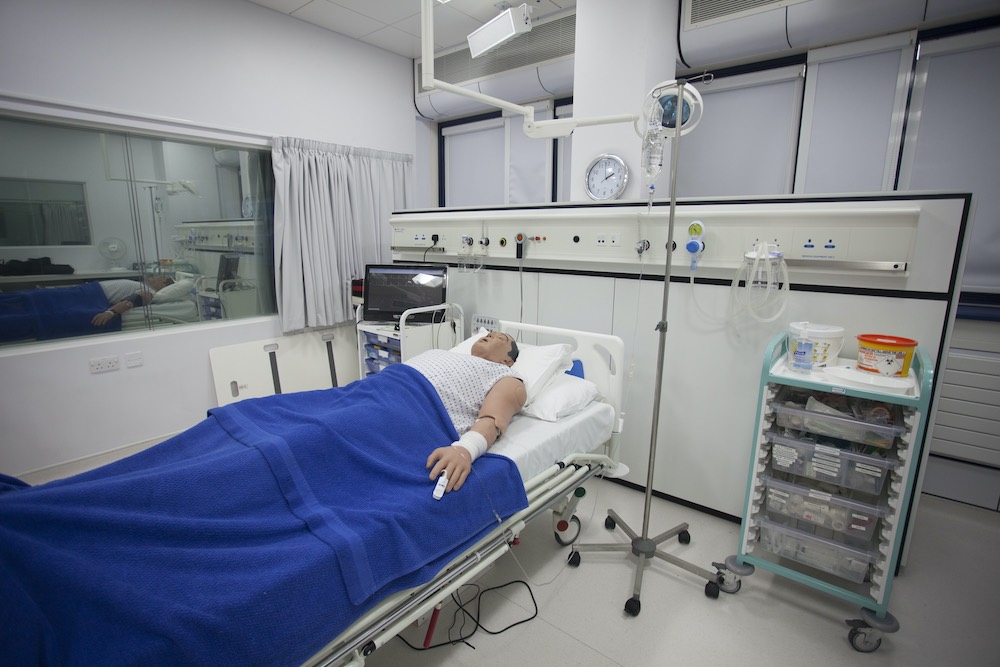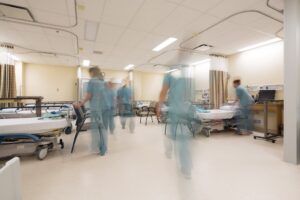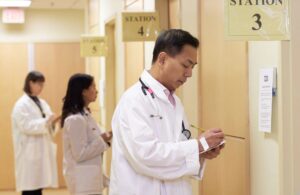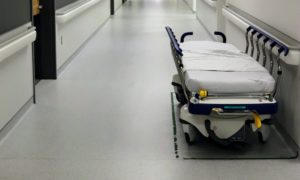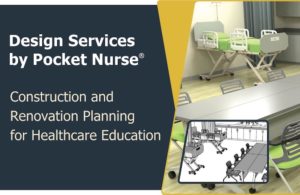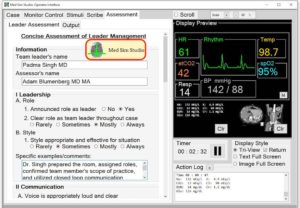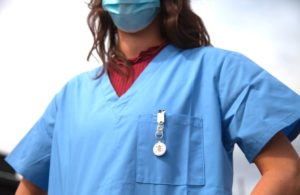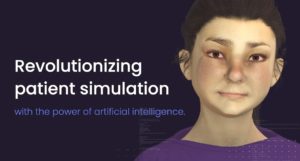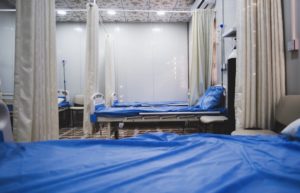Sim Lab
A Sim Lab is a healthcare simulation space designed to provide immersive learning experiences for learners and industry professionals. To provide these experiences, Simulation labs often contain manikins, task trainers, simulated learning systems, simulated medications, video recording systems, debriefing software and other simulation equipment.
One goal of a simulation laboratory is to allow learners to practice the skills needed during real-life scenarios, increasing patient safety by minimizing the risk of medical error. Another goal is to improve overall patient care stemming from competency-based instruction. Clinical simulation experiences allow learners to develop well-founded simulation principles. Augmenting high-quality patient care is driven by the ability to maintain the skills and competencies integral to healthcare.
To further benefit clinicians and healthcare providers, the Sim Laboratory is a place where individuals can be brought together in working groups or teams to collaborate. With the integration of standardized patients and medical simulation technology, healthcare teams can practice following protocols and administering treatment as they would under realistic circumstances.
Sponsored Content:
Preparing for a number of real-life emergencies and clinical occurrences, Sim Labs can reflect trauma conditions across a number of environments such as ambulatory settings, emergency operating rooms and clinics. Being able to offer such robust interprofessional education opportunities allows Simulation Labs to provide the most complete and far-reaching training to learners and trainees.
An additional focus of Sim Laboratories is clinical simulation innovation. To transform patient care, Sim Lab staff members, including simulation techs and simulation educators, are constantly looking for ways to implement new technologies. Combined with an environment that enables safe healthcare simulation practices, learners can experiment with medical simulation equipment and test limits without risk. Often, the best learning outcomes result from trial-and-error, hands-on participation.
Regarding clinical innovations, numerous healthcare simulation companies and vendors across the world are constantly working to produce the latest and greatest clinical simulation equipment and tools. Some of the most current technologies used in healthcare settings that can be simulated in the lab include EKG machines, medication carts, electronic health records, crash carts, IV pumps and defibrillators. From augmented reality to virtual reality and 3D printing, there are no limits to the solutions and software capable of transforming the way healthcare training is provided.
Using the technology and equipment available, Simulation Labs create innovative engagement opportunities to teach specific patient care standards, treatments and procedures. Ways in which these Simulation Centers can teach learners include demonstrations, return demonstrations, clinical evaluations, reenactments, role-playing and feedback debriefing. These actions are made possible by the use of patient simulators, robotics, and other healthcare simulation education tools.
Sponsored Content:
For example, nursing in simulation can be experienced through clinical scenarios that range from typical patient cases to low-frequency, high-risk scenarios. During their time spent in the Simulation Laboratory, nursing learners can practice assessing patients, communicating with healthcare providers, examining laboratory results and making critical care decisions. Upon feedback from clinical educators, they can better determine the level of their skills and abilities across the professional landscape.
With the ultimate goal to increase patient safety through excellence in education, the quality of care has become an essential focus of Sim Lab learning. Emulating the full scope of practice, decision-making and interventions are elements of this quality care that all learners should be presented with prior to entering the healthcare field.
Examples of Accredited Simulation Labs
The USF Health Simulation Consortium is a fully-accredited university in all areas of Assessment, Research, System Integration and Teaching/Education by the Society for Simulation in Healthcare (SSiH). Located in Tampa, Florida, the state-of-the-art education facility offers undergraduate and graduate nursing students the opportunity to train using hands-on methods and innovative technologies.
The goal of this Simulation Lab is to teach, maintain, and assess technical and cognitive competencies. The simulation center also educates learners on new procedures and emerging technologies in an experiential simulation-based interprofessional environment. The USF Health Simulation Consortium consists of the following programs that use a variety of simulation modalities as part of the educational process:
- Center for Advanced Medical Learning and Simulation
- Practice Partners
- Innovations
- Surgical Robotics
- Orientation Training
- Continued Professional Development
Some of the innovative technologies in use throughout these programs by the USF Sim Lab are specialized task trainers, simulators, standardized patients and virtual reality simulation software. Here, learners in medically-related disciplines at USF Health will also receive an interprofessional education (IPE), an integral part of a health professional’s education. Upon graduation, they will then gain the critical skills and confidence in their abilities needed to handle today’s challenging healthcare experiences.
Another Sim Lab, Harvard University’s Center for Medical Simulation, was founded in 1993 as one of the world’s first healthcare simulation centers. The simulation training provided at CMS gives healthcare providers a new and enlightening perspective on how to handle real medical situations. Through high-fidelity scenarios that simulate genuine crisis management situations, the CMS experience can open new chapters in the level of healthcare quality that participants provide.
At CMS, the focus is on communication, collaboration and crisis management to help learners develop skills and teamwork behaviors acquired under realistically simulated conditions. To date, CMS has run over two thousand courses and trained thousands of participants using innovative and challenging scenarios. The Sim Lab features a multidisciplinary expert staff, and is affiliated with some of the world’s most well-known and well-respected hospitals, medical universities and colleges. The Simulation Laboratory is known for a wide range of course offerings within high-quality and innovative programs in full-environment facilities.
The Yale School of Nursing Simulation and Assessment Lab is another Sim Laboratory dedicated to providing a safe environment to promote clinical competence, self-confidence, reflective practice, teamwork and interprofessional collaboration. Designed for both learners and faculty members, the Simulation Center and Assessment Labs support an incredible range of learning experiences for a wide range of YSN courses, as well as longitudinal learning experiences for Yale medical and physician associate learners. The well-appointed Simulation Center is a 5,300-square foot. space with computerized hi- and lo-fidelity healthcare simulation manikins, task trainers of all varieties, and hospital and clinical equipment of all types.
Drexel University’s College of Nursing and Health Professions is helping to lead the way in simulation by utilizing standardized patient actors to assist students in physical assessment and communication skills within the school’s Human Patient Simulation Lab (CSSL). This is where the use of computerized human patient simulators, standardized patients or hybrid cases are used for skill building. The space, consisting of approximately 2,300 square feet, can be transformed into acute (ICU, OR, ER, Medical Surgical, or Women’s Health) or community (home, board room, community center) environments, and consists of two large labs, control and ‘prop’ rooms.
Sim Lab Simulation Education Latest News
Sponsored Content:



